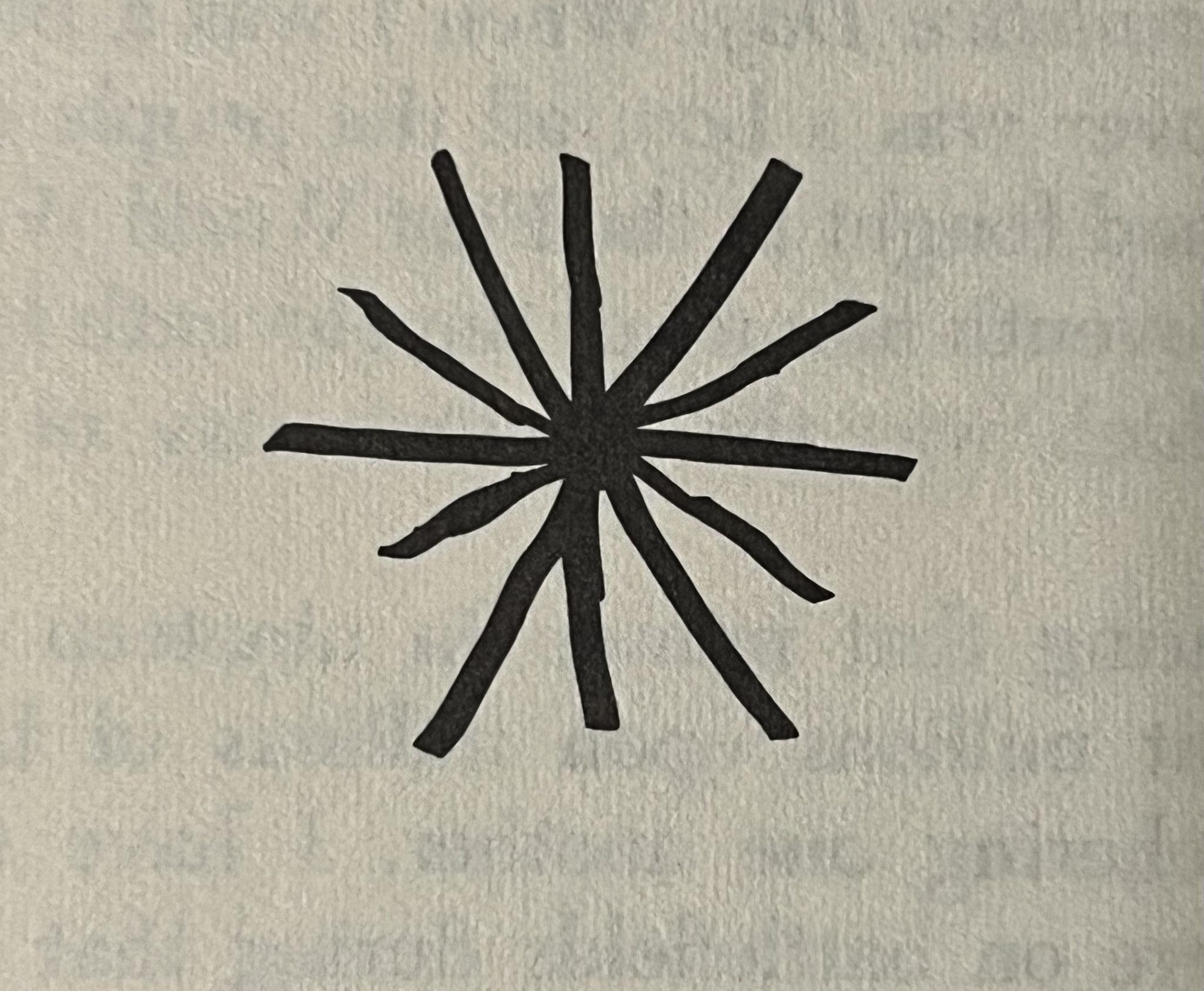Good work so far, crew. We are approaching being ⅓ of the way through Vol.1 and ⅛ of the way through the 3-volume work; we'll cross those marks this week.
Last week we looked at the political struggle between labour and capital, how it played out in real life. We saw how abstract principles of economics lead to lung problems in children.
Don't forget that this is a club: it is a shared activity, it's not only reading, it's something we do together to also build camaraderie. So engage in the comments.
The overall plan is to read Volumes 1, 2, and 3 in one year. (Volume IV, often published under the title Theories of Surplus Value, will not be included in this particular reading club, but comrades are encouraged to do other solo and collaborative reading.) This bookclub will repeat yearly. The three volumes in a year works out to about 6½ pages a day for a year, 46⅔ pages a week.
I'll post the readings at the start of each week and @mention anybody interested. Let me know if you want to be added or removed.
Just joining us? It'll take you about 13 hours to catch up to where the group is. Use the archives below to help you.
Archives: Week 1 – Week 2 – Week 3 – Week 4 – Week 5 – Week 6
Week 7, Feb 12-18, we are reading from Volume 1: all of Chapters 11, 12, and 13, and then the first 2 sections of Chapter 14
In other words, aim to reach the heading 'The Two Fundamental Forms of Manufacture: Heterogeneous Manufacture, Serial Manufacture' by Sunday
Discuss the week's reading in the comments.
Use any translation/edition you like. Marxists.org has the Moore and Aveling translation in various file formats including epub and PDF: https://www.marxists.org/archive/marx/works/1867-c1/
Ben Fowkes translation, PDF: http://libgen.is/book/index.php?md5=9C4A100BD61BB2DB9BE26773E4DBC5D
AernaLingus says: I noticed that the linked copy of the Fowkes translation doesn't have bookmarks, so I took the liberty of adding them myself. You can either download my version with the bookmarks added, or if you're a bit paranoid (can't blame ya) and don't mind some light command line work you can use the same simple script that I did with my formatted plaintext bookmarks to take the PDF from libgen and add the bookmarks yourself.
Audiobook of Ben Fowkes translation, American accent, male, links are to alternative invidious instances: 1 – 2 – 3 – 4 – 5 – 6 – 7 – 8 – 9
Resources
(These are not expected reading, these are here to help you if you so choose)
-
Harvey's guide to reading it: https://www.davidharvey.org/media/Intro_A_Companion_to_Marxs_Capital.pdf
-
A University of Warwick guide to reading it: https://warwick.ac.uk/fac/arts/english/currentstudents/postgraduate/masters/modules/worldlitworldsystems/hotr.marxs_capital.untilp72.pdf
-
Reading Capital with Comrades: A Liberation School podcast series - https://www.liberationschool.org/reading-capital-with-comrades-podcast/
@invalidusernamelol@hexbear.net @Othello@hexbear.net @Pluto@hexbear.net @Lerios@hexbear.net @ComradeRat@hexbear.net @heartheartbreak@hexbear.net @Hohsia@hexbear.net @Kolibri@hexbear.net @star_wraith@hexbear.net @commiewithoutorgans@hexbear.net @Snackuleata@hexbear.net @TovarishTomato@hexbear.net @Erika3sis@hexbear.net @quarrk@hexbear.net @Parsani@hexbear.net @oscardejarjayes@hexbear.net @Beaver@hexbear.net @NoLeftLeftWhereILive@hexbear.net @LaBellaLotta@hexbear.net @professionalduster@hexbear.net @GaveUp@hexbear.net @Dirt_Owl@hexbear.net @Sasuke@hexbear.net @wheresmysurplusvalue@hexbear.net @seeking_perhaps@hexbear.net @boiledfrog@hexbear.net @gaust@hexbear.net @Wertheimer@hexbear.net @666PeaceKeepaGirl@hexbear.net @BountifulEggnog@hexbear.net @PerryBot4000@hexbear.net @PaulSmackage@hexbear.net @420blazeit69@hexbear.net @hexaflexagonbear@hexbear.net @glingorfel@hexbear.net @Palacegalleryratio@hexbear.net @ImOnADiet@lemmygrad.ml @RedWizard@lemmygrad.ml @joaomarrom@hexbear.net @HeavenAndEarth@hexbear.net @impartial_fanboy@hexbear.net @bubbalu@hexbear.net @equinox@hexbear.net @SummerIsTooWarm@hexbear.net @Awoo@hexbear.net @DamarcusArt@lemmygrad.ml @SeventyTwoTrillion@hexbear.net @YearOfTheCommieDesktop@hexbear.net @asnailchosenatrandom@hexbear.net @Stpetergriffonsberg@hexbear.net @Melonius@hexbear.net @Jobasha@hexbear.net @ape@hexbear.net @Maoo@hexbear.net @Professional_Lurker@hexbear.net @featured@hexbear.net @IceWallowCum@hexbear.net @Doubledee@hexbear.net @Bioho@hexbear.net @SteamedHamberder@hexbear.net @Meh@hexbear.net
At the end of chapter 11: Look at this dumbass who thinks his equipment gets devalued by shortening the workday. First of all, there’s less wear and tear. Second of all, if the workers are more rested and prepared, they’ll make fewer mistakes and fewer time-loss accidents.
Finally, if you’re able to cut your use low enough, you could rent out time on the equipment to other contractors, and you’d only need to do minor upkeep and not purchase raw materials. Capitalism really does give you brain worms.
Whenever an individual capitalist cheapens shirts, for instance, by increasing the productiveness of labour he by no means necessarily aims at reducing the value of labour-power and shortening, pro tanto the necessary labour-time. But it is only in so far as he ultimately contributes to this result, that he assists in raising the general rate of surplus-value. The general and necessary tendencies of capital must be distinguished from their forms of manifestation.
In one of the earlier threads, someone asked why capitalists would ever try to increase productivity when that would just make them work harder for the same profit. I bolded the last line to show that Marx perceived a difference between general law versus particular manifestations of that law. Or, that the individual capitalist need not attempt or even be aware of the general law, so long as material factors nudge them in line with the law.
Something almost imperceptible happened in chapter 12 — did anyone else notice it?
We started in chapter 1 with the assumption of the law of value, that commodities exchange at their values. But now, with the coercive law of competition resulting from relative surplus value, we have found that this assumption can be dropped. The law of value, which we at first had to assume, now stands on its own feet as competition compels producers to adopt new techniques because prices fall. So it is by this mechanism of competition that prices tend toward value, not in every individual case, but statistically through the anarchy of competition.
The minimum sum of value the individual possessor of money or commodities must command in order to metamorphose himself into a capitalist changes with the different stages of development of capitalist production, and is at given stages different in different spheres of production, according to their special technical conditions
This is what moderns call "barrier to entry"
"it costs less labour to build one workshop for twenty persons than to build ten to accommodate two weavers each; thus the value of the means of production concentrated for use in common on a large scale does not increase in direct proportion to their extent and useful effect."
We now call this economies of scale.
oh I like almost forgot, but that footnote with like Charles Darwin reminded me, that Darwin and Marx were both alive at the same time
Darwin and Marx were both alive at the same time
Yeah, and Marx was also following the American Civil War while it was happening, and was a big supporter of the Union over the Confederacy (obviously). Marx even wrote a letter to Lincoln, although Lincoln left him on read: https://jacobin.com/2012/08/lincoln-and-marx
Also, here's a good video on Darwinism, Marxism, and their contradictions: https://www.youtube.com/watch?v=rfYvLlbXj_8
Marx and Darwin are also known to have exchanged at least one pair of letters when Marx sent Darwin a copy of Capital volume 1.
Marx thought highly of Darwin's theory although wasn't entirely uncritical. Darwin was, truth be told, a bourgeois scientist with his own limitations. It is not known whether Darwin ever opened Capital, but it's unlikely.
Engels, for his part, had some interesting thoughts on Darwin.
Those were really interesting to read, thanks! I really like that letter to Lavrov from Engels. I really liked Engels fourth point/observations in that letter. and going to that entire letter. It kind of reminds me of like that base/superstructure stuff? and the like "struggle for existence" is kind of like that manifestation of the base of capitalism into the superstructure?
I'm glad you found that Engels letter interesting too! I discovered it while looking up the Darwin letter for that comment. It gave me a lot to think about too. Especially since my background is in the natural sciences, I never heard that kind of critique of Darwin.
#4 in the letter echos a lot of what Marx wrote. For example Marx's 10th thesis on Feuerbach: "The standpoint of the old materialism is civil society; the standpoint of the new is human society, or social humanity." (By civil society, Marx means bourgeois or capitalist society.) The common thread of all of Marx's work is the scientific study of humanity. This means grasping the "differentia specifica" (to quote footnote 33 in chapter 1 of Capital) of the major epochs of human history, as differentiated by the actual mode of existence of each epoch — mode of existence, for humans, being determined by mode of production, like Engels says. In addition to understanding the historical specificity of social laws e.g. the law of value, it is important also to understand those things which differentiate humans from animals. In all, this letter is great for summarizing a lot of these ideas of Marx and Engels and later socialists.
Kind of similar to this letter is Marx's July 1868 letter to Dr. Kugelmann, which I have posted in the past. It also discusses human history in this sort of abstract materialist way.
A small note on Engels' point #1: the term "one-sided" is a term also used by Marx in various places, having roots in the Hegelian dialectic and its attempt to eliminate one-sidedness in thought, by contemplating concepts from many sides based on their immanent characteristics. That is what Marx does in Capital, and since it is a general attitude of thinking (much like science is also an attitude) it is no wonder that Engels catches this one-sidedness in the early apprehension of Darwin's theory in Malthusian, Hobbesian, generally bourgeois interpretations of Darwin's work.
Finally, if you liked this letter, then you would probably like Marx's The German Ideology (for which the Theses on Feuerbach were preparatory notes) or Engels' Socialism: Utopian and Scientific.
That vid was pretty interesting, and the bookclub has read more than Darwin. Also doesn’t Marx dunk a lot on Malthus?
In a way like, besides colonialism, it seems like I dunno “proto fascism” can also be seen around like that time? Besides like Malthus, social darwinists, eugenicists, there was also like nietzsche to who gets describe as a proto fascist as well? Who was also alive at that time, except a little later I think?
Also that vid reminded me of like the tragedy of commons being taught in like biology classes, but meanwhile like it is a myth and debunked a lot.
Marx did not live long enough to see the rise of fascism, but he did see and speak out against colonialism. And as the Aimé Césaire quote goes, "fascism is colonialism turned inward." There was a great article recently about Marx and colonialism, "Karl Marx Supported Arab Liberation," about how Marx lived in French Algeria and sympathized with the Arab resistance against French oppression: https://jacobin.com/2024/01/karl-marx-colonialism-algeria-egypt
Thanks and that was a really interesting read. I never knew of Marx visiting French Algeria.
Both Kropotkin and Marx took inspiration from, and had ruthless critique of, Darwin and especially social Darwinism. Marx having also drawn on some of Kropotkin's writing on evolution and human nature.
Marx drawn on some of Kropotkin stuff? and doesn't Kropotkin like really critique Darwin and those social darwinist in his Mutual Aid book along with like, the idea of the struggle for survival?
yes and that was the part of Kropotkin's critique that Marx drew on. Kropotkin was a prince and a curious boy and later a curious man. He had the privilege of studying many subjects from evolution and zoology to social sciences, and came to the conclusion that this practice of enslavement of our fellow man by chattel or by wage labour and coercion was an aberration.
Marx came along and altered this hypothesis, adding the dialectical approach to this work and incorporating his analysis of many other works like Wealth of Nations, to say that this was not an aberration, but in fact, a natural product of prior material conditions.
It is from here that people like Lenin, Stalin, and Mao, begin to develop Marxism as a science that can not only be used to examine the past and determine what is to be done in the present, but advances to become an an actual science that can be used to make broad assumptions about the probability of future events.
I found a YouTube link in your comment. Here are links to the same video on alternative frontends that protect your privacy:
to get some discussion going..
what's the difference between absolute surplus-value, and relative surplus-value?
My understanding is that it's a question of which variable you're tweaking. If you're making the work day longer you're getting more absolute surplus, you're changing the amount by adding a flat amount of labor power over time.
By contrast relative surplus comes from making labor power cheaper and increasing the proportion of the day that is surplus value without extending the time a person works.
I think.
i've now finished reading vol 1 please clap for me

i'm sure large chunks of it went right over my head, but i feel like i got a lot more out of my reading than i expected? like prior to our reading group, i had imagined capital to be this almost impenetrable text; something you'd need a whole arsenal of reading guides, podcasts etc to get through. but like... it really wasn't that bad? the feeling i'm left with is that, even if i didn't understand all of it on this first reading (which i didn't expect to either), i'm definitely capable of comprehending it if i put the work in
anyway, i'll try to re-read along with the reading group now!
i've now finished reading vol 1 please clap for me
Here is the colouredy version of the Vol. 1 trophy that's greyed out at the top of the page (Nobody click it besides Sasuke!):
Show
I really like chapter 13, it like made a lot more things make sense or for things to click more. Like the means of production in common, or social relations or like social labor or social working day? I dunno it just, made it less abstract? Like I can see now what is more meant by social labor? esp. when Marx said this
Being independent of each other, the labourers are isolated persons, who enter into relations with the capitalist, but not with one another.
Moreover, this character of being necessary conditions of social labour, a character that distinguishes them from the dispersed and relatively more costly means of production of isolated, independent labourers, or small masters, is acquired even when the numerous workmen assembled together do not assist one another, but merely work side by side. A portion of the instruments of labour acquires this social character before the labour-process itself does so.
But it feels like in a way like, chapter 13 kind of like touches upon alienation? like right here
Their union into one single productive body and the establishment of a connexion between their individual functions, are matters foreign and external to them, are not their own act, but the act of the capital that brings and keeps them together.
also this was kind of funny
Strictly, Aristotle’s definition is that man is by nature a town-citizen. This is quite as characteristic of ancient classical society as Franklin’s definition of man, as a tool-making animal, is characteristic of Yankeedom.
This law clearly contradicts all experience based on appearance. Everyone knows that a cotton spinner, who, reckoning the percentage on the whole of his applied capital, employs much constant and little variable capital, does not, on account of this, pocket less profit or surplus-value than a baker, who relatively sets in motion much variable and little constant capital.
So we have a contradiction. On the one hand, the law of value requires that surplus value be in proportion to variable capital. But everyday practice shows that profit is a fraction of the total capital advanced, including constant capital… seems like a huge problem if we stopped right here.
How profits are equalized, between industries that have different ratios of variable to constant capitals, turns out to be important only a long while later, in Volume 3.
Does anyone have thoughts about how this contradiction is resolved?
Does anyone have thoughts about how this contradiction is resolved?
Something to do with competition between industries leading to equalisation of profit?
Here, as in natural science, is shown the correctness of the law discovered by Hegel (in his “Logic”), that merely quantitative differences beyond a certain point pass into qualitative changes.
Interesting to see Marx directly discussing Hegel here. This quantity-quality relation is discussed by Mao in On Contradiction
Of course he can, like his labourer, take to work himself, participate directly in the process of production, but he is then only a hybrid between capitalist and labourer, a “small master.”
Isn't that like, the petite bourgeoise?
From the standpoint of these, capitalistic co-operation does not manifest itself as a particular historical form of co-operation, but co-operation itself appears to be a historical form peculiar to, and specifically distinguishing, the capitalist process of production.
Marx kind of like confused me on this, I'm not exactly sure what he's trying to say? Was he trying to say like, it's not like a historical form of cooperation, but more like, in capitalism, cooperation plays a different role?
I was also confused by the appearance of the term "small master" and am wondering if it's just literally the same thing as petite bourgeoise, or if there is some distinction. Both terms seem to be describing that transitionary state between being a self-employed artisan, and being a full-blown capitalist.










